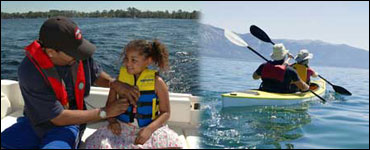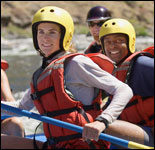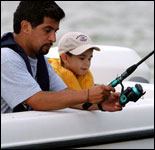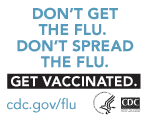Staying Safe on the Water - National Safe Boating Week

Summer is an ideal boating season, and Americans enjoy spending leisure time on the water, whether on the lake, river, or ocean. More than 70,000,000 people go boating for recreation every year.
When a boating incident happens, properly fitted and worn life jackets can-- and do-- save lives. In 2006, the U.S. Coast Guard received reports for 4,969 boating incidents; 3,474 boaters were reported injured, and 710 died. Of people who drowned, only one in ten had a life jacket on.
May 17-23, 2008 is National Safe Boating Week*, and the theme of this year's campaign – focused on promoting life jacket use – is "Wear It!" If you're planning to spend time boating this season, always wear your life jacket. This simple safety precaution can help make your time on the water fun, safe, and healthy – this season and for many to come.
Know How You Can Make Boating Safer

Water-related incidents result in thousands of injuries and hundreds of deaths each year. To help stay safe while enjoying your time on the water:
Always Wear Your Life Jacket
Life jacket use reduces the risk of drowning. Coast Guard-approved life jackets are now more attractive in appearance and comfortable to wear. When properly fitted, a life jacket or personal flotation device (PFD) can help to prevent a tragedy.
Don't Drink Alcohol While Boating
Alcohol affects judgment, vision, balance, and coordination. Alcohol is involved in one in four boating fatalities.
Take a Boating Education Course
In 2006, seven out of 10 boating fatalities happened on boats whose operators hadn't taken a boating safety course.
Participate in the Vessel Safety Check (VSC) Program
The Vessel Safety Check (VSC) is a free public service provided by the U.S. Coast Guard Auxiliary and U.S. Power Squadron volunteer organizations promoting boating safety. These volunteer personnel check safety equipment and provide information about equipment purpose, safety procedures and applicable regulations. For more information on the VSC Program, visit their Web site*.
Be Aware of the Risk of Carbon Monoxide (CO) Poisoning
All internal combustion engines release CO, an odorless, colorless, poisonous gas. In the early stages, the symptoms of CO poisoning are similar to seasickness, but CO can kill in a matter of minutes.
Risks for CO poisoning include:
• Using air conditioning that is powered by an onboard motor generator
• Operating a gasoline-powered engine while docked or secured to (rafted with) other boats operating engines
• Swimming or floating near an idling boat engine
• Running your boat (being underway) with improper cabin ventilation.
To avoid CO poisoning, be aware of the risk, ensure sufficient ventilation, properly install and maintain equipment, and use CO detectors, especially in living and sleeping areas.
Know Your Local Rules and Requirements

Be sure to check state and local requirements, available from the National Association of State Boating Law Administrators*, before boating. There are different rules and regulations for operator-age, safety equipment, etc. in different parts of the country.
Additional Resources
Page last updated: May 22, 2008
Content source: Division of Unintentional Injury, National Center for Injury Prevention and Control
Content owner: National Center for Health Marketing
URL for this page: www.cdc.gov/Features/BoatingSafety
*Links to non-federal organizations are provided solely as a service to our users. These links do not constitute an endorsement of these organizations or their programs by CDC or the federal government, and none should be inferred. CDC is not responsible for the content of the individual organization Web pages found at these links.


